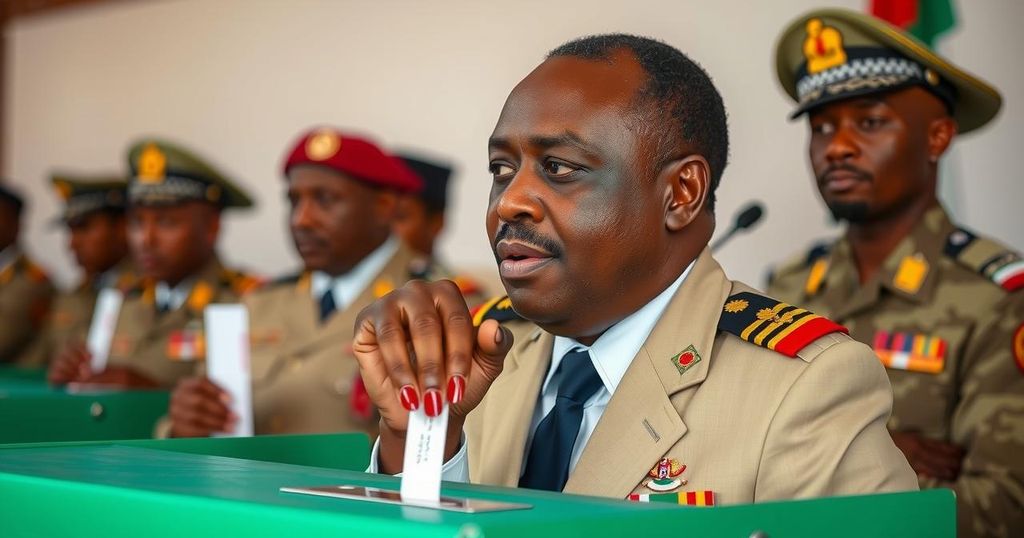Chad Holds Parliamentary Elections Amid Opposition Boycott As Military Rule Concludes

Chadians are voting in their first parliamentary elections in over a decade, signaling the end of military rule. The elections are boycotted by the main opposition; Mahamat Idriss Deby remains a contentious leader following a disputed presidential election earlier this year, after succeeding his late father, Idriss Deby Itno.
On Sunday, citizens of Chad participated in parliamentary and regional elections, marking the conclusion of a three-year transitional period following military governance. This significant electoral event is the first of its kind in over ten years, yet it is marred by a boycott from the primary opposition parties. The elections come in the wake of a contentious presidential election earlier this year, in which the military leader, Mahamat Idriss Deby, asserted his authority after ascending to power following the death of his father, former long-standing President Idriss Deby Itno, in 2021.
Chad has faced significant political turbulence following the death of President Idriss Deby Itno in April 2021, after a 30-year reign. His son, Mahamat Idriss Deby, subsequently assumed control and announced a transitional military government. The elections on Sunday are crucial for restoring democratic governance in Chad, however, the absence of the mainstream opposition raises concerns regarding the legitimacy of the electoral process and the future of democracy in the country.
In summary, the parliamentary elections in Chad represent a pivotal moment as the nation seeks to transition from military rule to a democracy. However, the boycott by key opposition parties raises significant questions about the validity and democratic nature of the elections, which could impact the country’s political landscape moving forward. The outcome of these elections will be closely monitored as Chad navigates its post-military governance phase.
Original Source: www.wdrb.com







